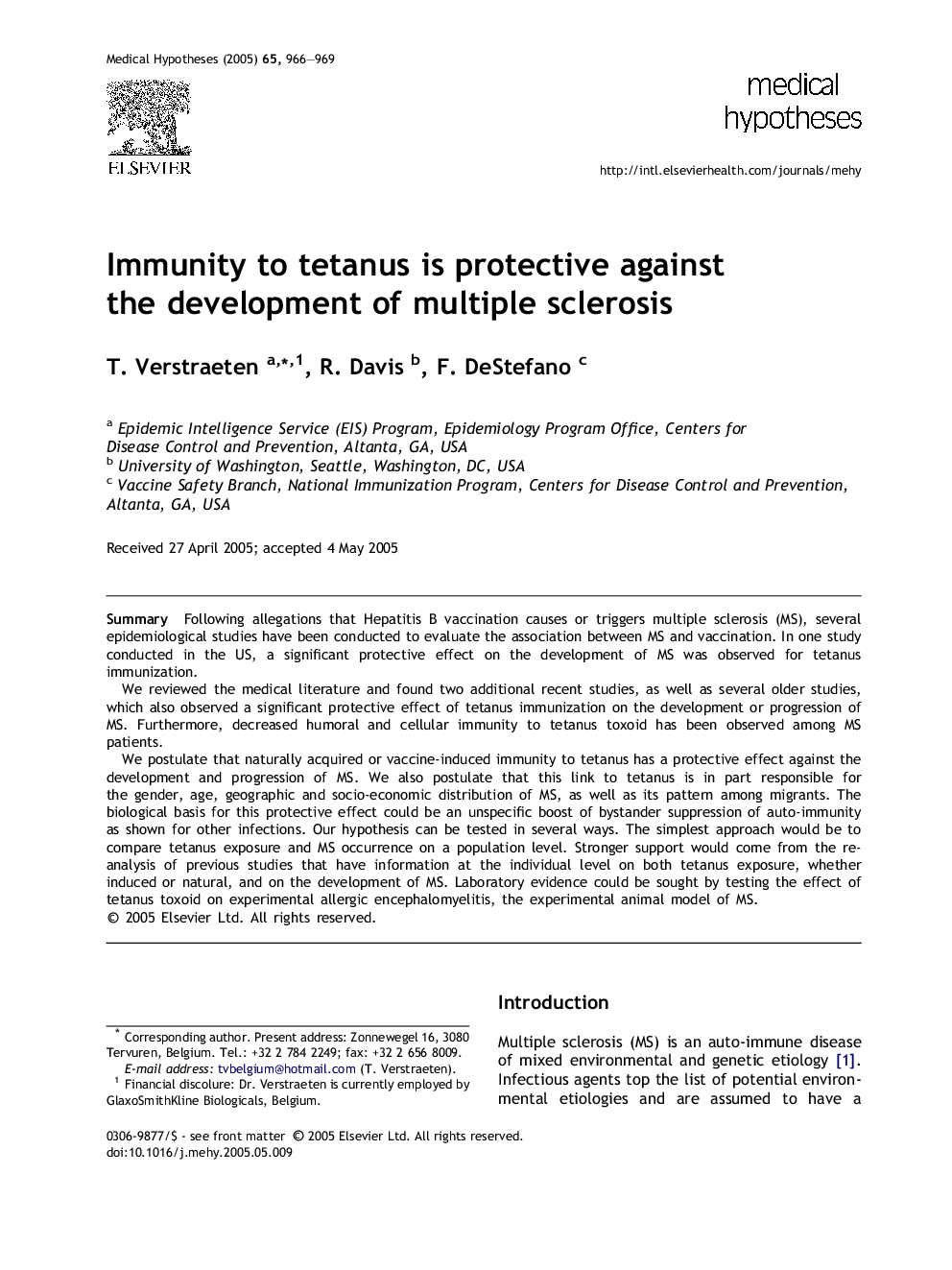| Article ID | Journal | Published Year | Pages | File Type |
|---|---|---|---|---|
| 8996650 | Medical Hypotheses | 2005 | 4 Pages |
Abstract
We postulate that naturally acquired or vaccine-induced immunity to tetanus has a protective effect against the development and progression of MS. We also postulate that this link to tetanus is in part responsible for the gender, age, geographic and socio-economic distribution of MS, as well as its pattern among migrants. The biological basis for this protective effect could be an unspecific boost of bystander suppression of auto-immunity as shown for other infections. Our hypothesis can be tested in several ways. The simplest approach would be to compare tetanus exposure and MS occurrence on a population level. Stronger support would come from the re-analysis of previous studies that have information at the individual level on both tetanus exposure, whether induced or natural, and on the development of MS. Laboratory evidence could be sought by testing the effect of tetanus toxoid on experimental allergic encephalomyelitis, the experimental animal model of MS.
Related Topics
Life Sciences
Biochemistry, Genetics and Molecular Biology
Developmental Biology
Authors
T. Verstraeten, R. Davis, F. DeStefano,
